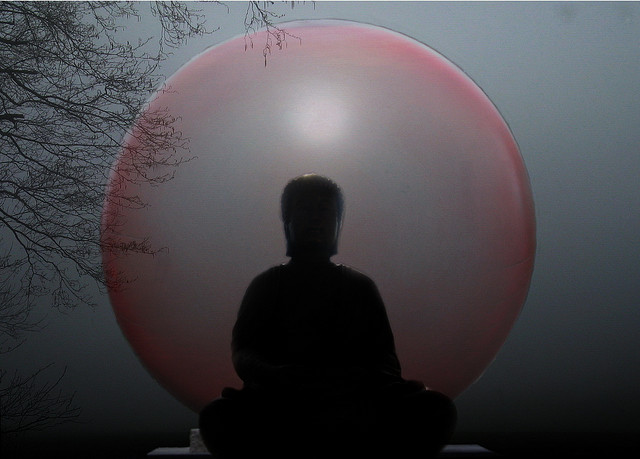
A fascinating new study published in Science finds that people really, really don't like to be left alone with their own thoughts, not even for six minutes. The report, called, "Just Think: The Challenges of the Disengaged Mind," by Timothy D. Wilson, David A. Reinhard, Erin C. Westgate, Daniel T. Gilbert, Nicole Ellerbeck, Cheryl Hahn, Casey L. Brown, and Adi Shaked, found:
In 11 studies, we found that participants typically did not enjoy spending 6 to 15 minutes in a room by themselves with nothing to do but think, that they enjoyed doing mundane external activities much more, and that many preferred to administer electric shocks to themselves instead of being left alone with their thoughts. Most people seem to prefer to be doing something rather than nothing, even if that something is negative.
Let me repeat: "Many preferred to administer electric shocks to themselves" rather than listen to what's going on in their own heads. And you wonder why it's so awkward when presenters, with the best of intentions, pause for a minute and ask people to think about what they just learned—instead, they're wishing for a little jolt to preoccupy them so they can avoid doing just that!
Related: The Brain Science Behind Meeting Breaks
And yet contemplative time is essential for adult learning to take place, as Velvet Chainsaw Consulting's adult ed expert Jeff Hurt has pointed out repeatedly, most recently in this post on the need to create times and places for "joyful silence" at meetings. As he says,
Reflection takes us beyond the words to a place of rest, openness and receptivity. It can also provide opportunity for unexpected insight.
With silence, solitude and contemplation, we can rest from all the human striving and touch a deeper truth that runs underneath everything else. Then we can reengage with the conference experience in a unique way.
He also offers a few suggestion on how to create those times and spaces, which I recommend you check out. But I think the idea of giving people something physical to do while reflecting—be it writing, or walking a maze, or playing with table toys—may be essential, given our apparent reluctance to just mull on our own. I find knitting, gardening, yoga, and fishing to be great ways to do something without really engaging the mind too much (at least, the way I do the above! More serious enthusiasts probably find other ways to make it happen). Just a minimal amount of physical effort seems to help set our minds free to wander.
How can you help facilitate cogitation among a species whose minds constantly need to engage with the world, in a meeting space full of happy distractions?





